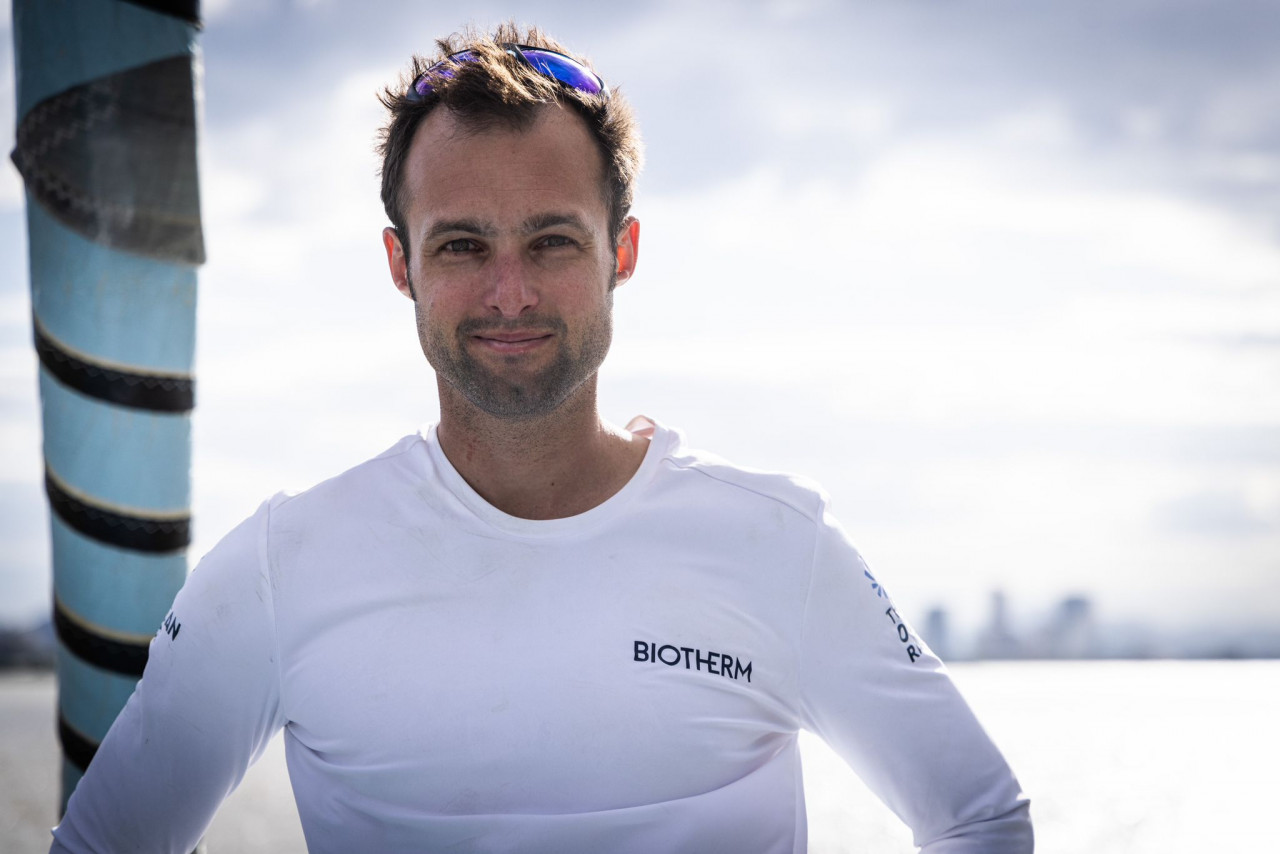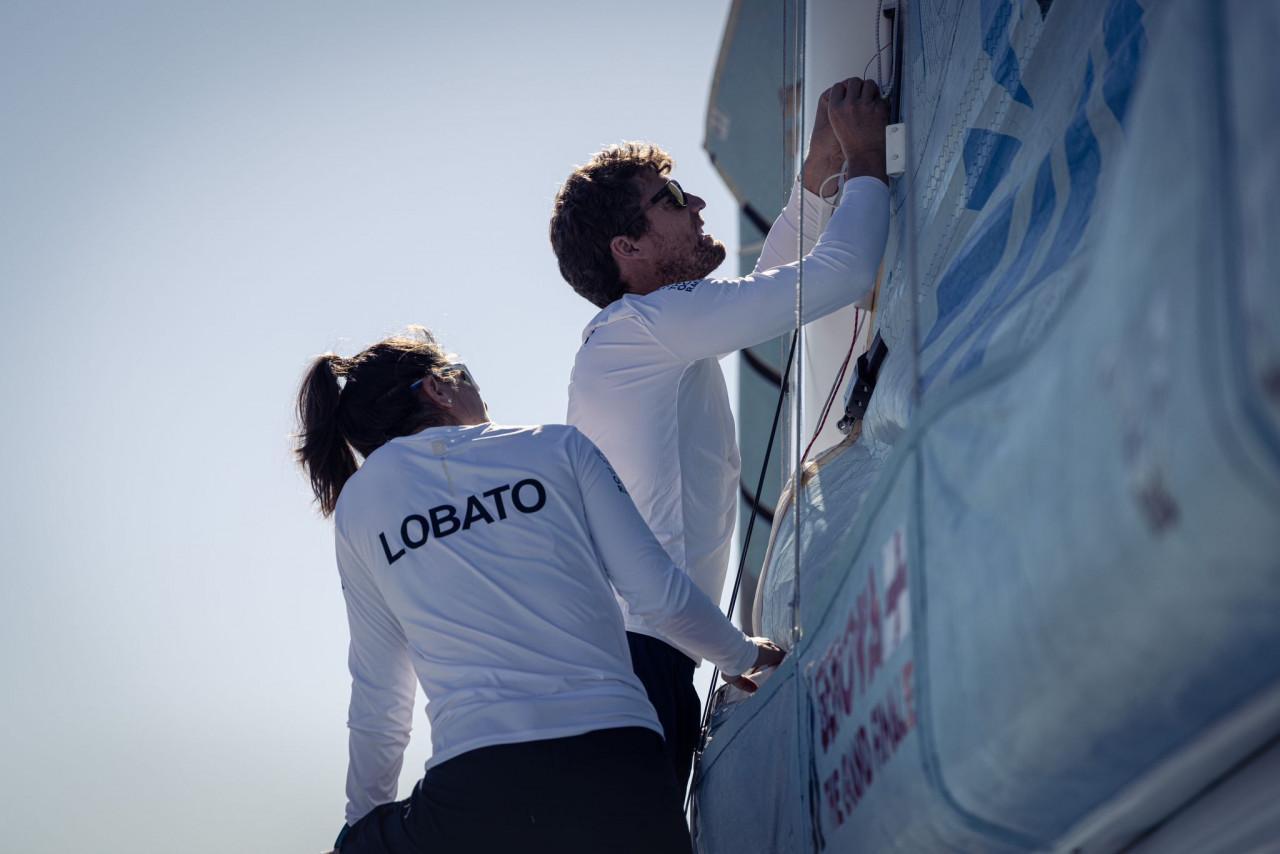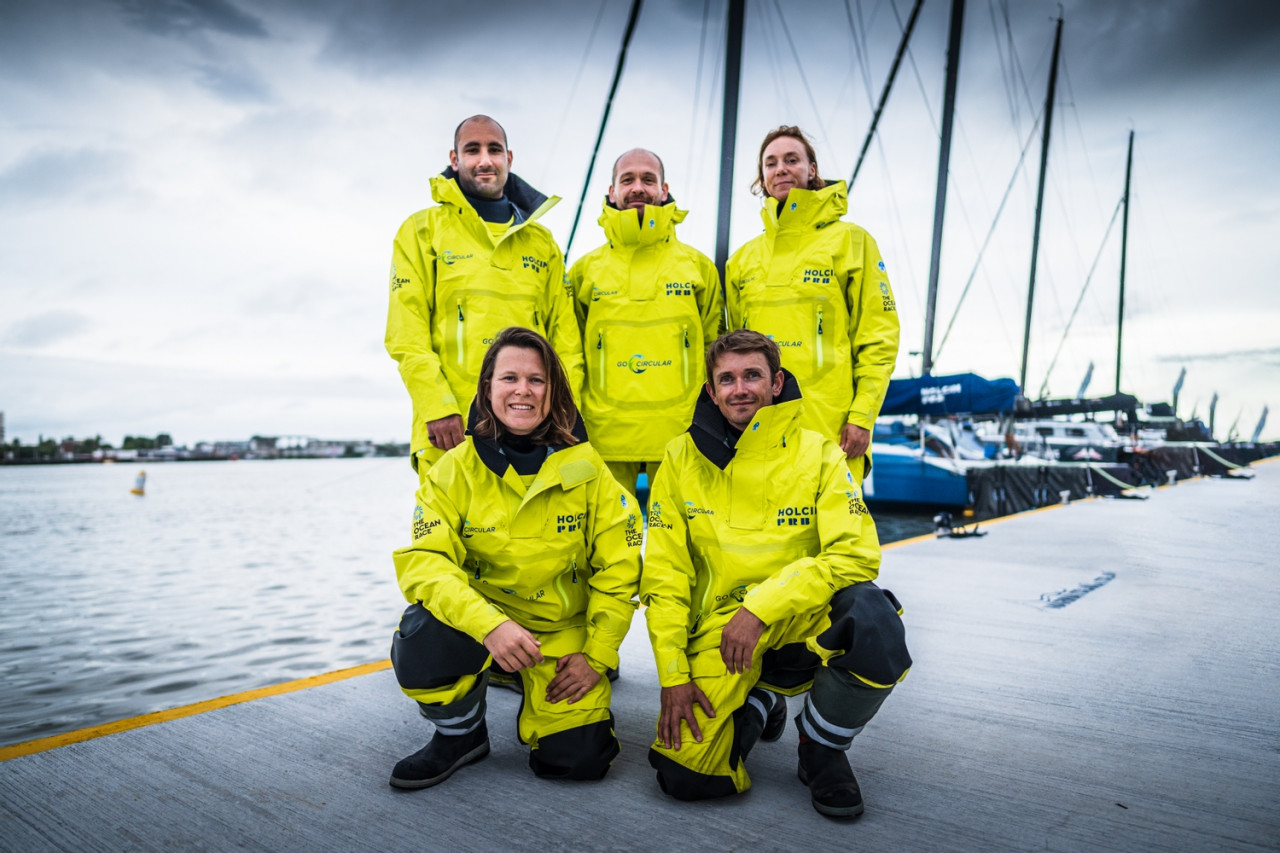IMOCA teams learn to play the crew merry-go-round in The Ocean Race

Crew changes at stopovers and running a squad system throughout the race are new disciplines that IMOCA teams are learning, as they pioneer the Class’s first engagement in The Ocean Race.
Just like ensuring they get the right input from their shore team at stopovers, making astute changes to crew rosters is a critical skill when executing a successful The Ocean Race campaign.
This is the mechanism that ensures that tired or jaded sailors can be replaced with ones “off the bench,” who can bring fresh energy and enthusiasm to the task of racing an IMOCA fully-crewed 24 hours-a-day.
But getting the changes right is not easy. Will the newcomers fit in? Will the new crew have the right balance of technical and sailing skills? And will the new sailors be able to deliver a level of performance to match – or even improve upon – what the outgoing crew had managed?
As the start of Leg 4 from Itajai in Brazil to Newport, Rhode Island draws near, there are eight “new” sailors preparing to join the race, with two teams – Paul Meilhat’s Biotherm and Kevin Escoffier’s race-leading Holcim-PRB – bringing on three newcomers each.
On Biotherm the British Figaro sailor Alan Roberts is stepping up, alongside Frenchwoman and Dongfeng Race Team veteran Marie Riou, and the Portuguese Olympic and match-racing sailor Mariana Lobato. For Roberts, 33, this is a great opportunity to race in the Class he has been aiming at for some years but has yet to break into as a solo skipper.

He says taking over from Anthony Marchand, Sam Davies and Damien Seguin will not be easy for the new recruits or their skipper, as they join Meilhat on board the IMOCA currently sitting in fourth place overall. “I think it’s going to be difficult for Paul at the beginning because we have to learn the boat and he has to trust us, although he must already trust us because he chose us,”said Roberts. “But we are used to stage races with the Solitaire du Figaro and I see each stage as a race in itself.”
Roberts said he had spent time, as he prepared for his The Ocean Race debut on Biotherm, examining video and photographs taken during the first three legs, to help him get up to speed with what Meilhat and his team were doing. “I had a good look at the footage to see the sail choices and settings and life on board,”he said. “I don’t think what we are doing is that far from the Solitaire. We’re only going to be two on watch at the same time. But I am going to give it my all, as I do every time I’m on the water.”
Meilhat says his new crew brings a greater emphasis on racing skills and brings “more freshness”to his campaign. The Biotherm skipper is hoping to improve his game now that the race has returned to the Atlantic, an arena that he believes should suit his boat better than the Southern Ocean.
“Marie and Mariana have similar Olympic backgrounds, but Mariana is now more experienced with crewed racing and big boats, and Marie has more foiling experience,” he explained. “Alan has done a lot of IMOCA sailing recently with two transatlantic races in the last four months. We’re entering a new part of The Ocean Race, we have more confidence in the boat, we know it has more potential in the conditions we’re going to encounter at the end, so we’re raising our game and we’re going to race more!”

Over on Holcim-PRB, a similar big switch is underway with three newcomers joining Escoffier and replacing Sam Goodchild, Tom Laperche and Abby Ehler. In their place will be Frenchman Fabien Delahaye, one of the IMOCA fleet’s top performance experts who has been part of the team since the beginning; Benjamin Schwartz, also from France, who has a wealth of experience in a variety of boats and is a navigator to boot; and Annemieke Bes from the Netherlands, a three-time Olympian with a long track record in big boat sailing and a veteran of the last The Ocean Race.
Team manager Marine Derrien told the Class that the Holcim-PRB campaign will use 11 sailors altogether by the time they reach the finish at Genoa in late June. She said Escoffier had selected his squad before the race start in January, but firm decisions on who sails on which legs have been made only recently in the light of how the team has performed.
Derrien says she and Escoffier are well aware of the risks of bringing an almost completely new crew on board a boat that has dropped only one point so far after an outstanding first three legs. “It is true the new team might not work as well and, to be honest, we would have been more comfortable keeping the existing crew, because it is so difficult to find a group that works so well. But we know that it is important to bring fresh energy to the project,”she said.
“It would be easy to keep everything as it was, but would the crew have the same energy compared to other teams that bring in new people?” she added. “That’s the balance. We know that The Ocean Race is such a long race – we’ve done only 40% of the points so far, so we are not even halfway through it, so it is important to bring fresh people in.”

While crew changes are taking place on four of the five boats in Brazil, it is interesting that both Escoffier and Meilhat are among the skippers who plan to do the entire race, despite the punishing conditions on board and the deep exhaustion they have already experienced after the marathon leg through the Southern Ocean.
Derrien says she is confident Escoffier can complete the circuit without a break. “I think he is ready to do it and I think he can do it, but that is why it is important to bring the right people in around Kevin at key points,” she said.
Meilhat seems to be on a roller-coaster and he doesn’t want to get off. “I think you should never get out of the race and that’s one of the reasons why I never go home,” he said. “Since last May, with the construction of the boat, I have spent very little time at home. I’ve been in this spirit for a year now and I know that I can’t let it stop, otherwise I’ll never be able to set off again. So my family comes out to visit, I take time off, but I never get out of the race.”
He said he has felt physical exhaustion at times, but it’s the psychological strain that is harder to deal with on this 32,000-nautical mile marathon challenge. “There is physical fatigue, but you don’t feel it too much – it’s more the mental fatigue that is difficult to manage, but fortunately we have a great team spirit and that helps enormously,”he said.
Ed Gorman
Team Holcim-PRB (SUI)
Kevin Escoffier (FRA), skipper
Fabien Delahaye (FRA)**
Benjamin Schwartz (FRA)**
Annemieke Bes (NED)**
Georgia Schofield (NZL)*, OBR
11th Hour Racing Team (USA)
Charlie Enright (USA), skipper
Simon Fisher (GBR)
Damian Foxall (IRE)**
Francesca Clapcich (ITA)*
Amory Ross (USA)
GUYOT Environnement-Team Europe (FRA-GER)
Benjamin Dutreux (FRA), skipper
Sébastien Simon (FRA)
Robert Stanjek (GER)
Annie Lush (GBR)
Gauthier Lebec (FRA)**, OBR
Biotherm (FRA)
Paul Meilhat (FRA), skipper
Mariana Lobato (POR)**
Alan Roberts (GBR/ BRA)**
Marie Riou (FRA)**
Anne Beaugé (FRA)*
Team Malizia (GER)
Will Harris (GBR), skipper
Nicolas Lunven (FRA)
Rosalin Kuiper (NED)
Christopher Pratt (FRA)**
Antoine Auriol (FRA)
*Crew swap for a sailor who has already raced at least one leg on board this IMOCA in this edition of the race
**New crew member, rookie of this edition of The Ocean Race
Teams info
After a stunning 2025 season Sam Goodchild is the IMOCA Globe Series Champion for the second time
After a long season at the top of the IMOCA fleet that featured three race wins, Great Britain’s Sam Goodchild is for the second time in three years the IMOCA Globe Series Champion.
•••Quel rôle peut jouer la course au large dans la transformation du transport international ? Avec Pie…
Pour ce 10ᵉ épisode de Transitions, enregistré au Havre lors du départ de la Transat Café L'Or, nous recevons Jeremy Pochman, PDG de 11th Hour Racing, et Pierre-Antoine Morvan, responsable du pôle course au large et supe…
•••